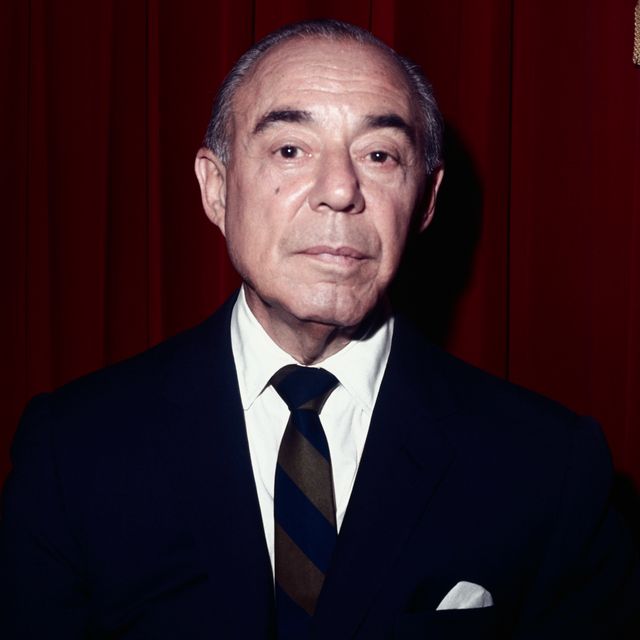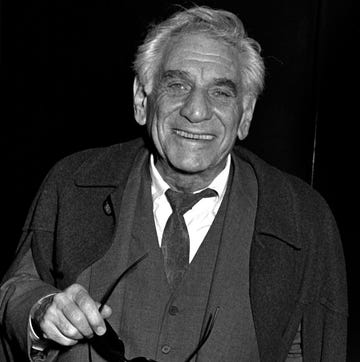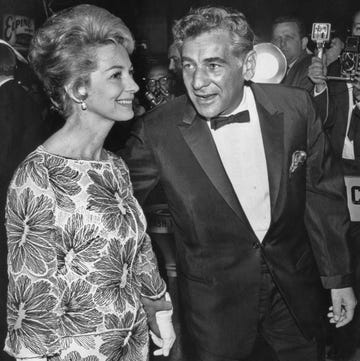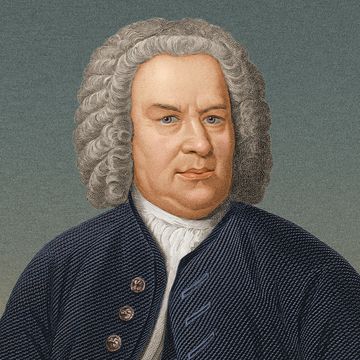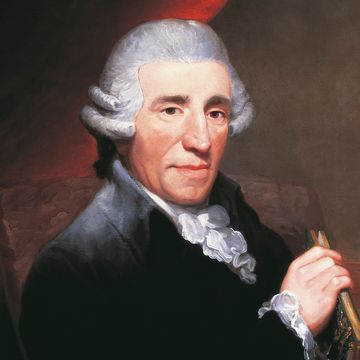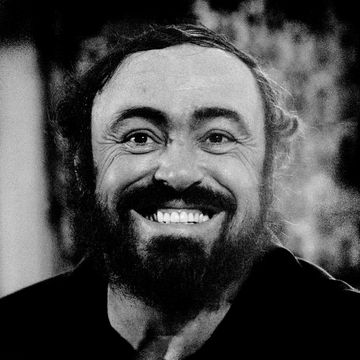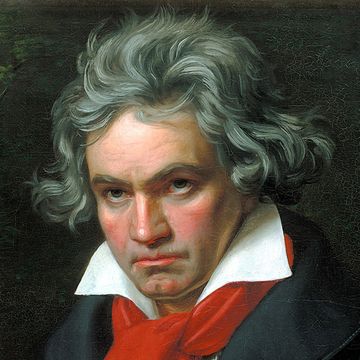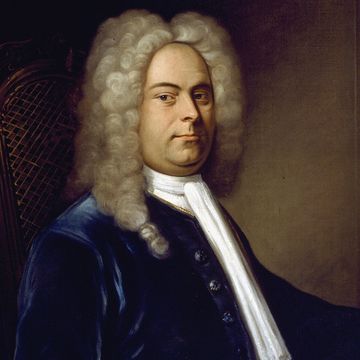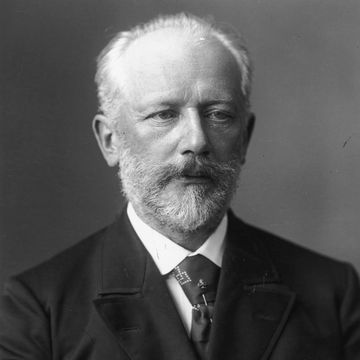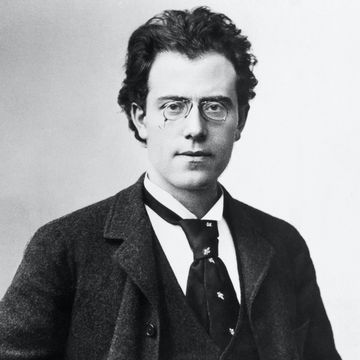(1902-1979)
Synopsis
Along with Jerome Kern, Lorenz Hart and Oscar Hammerstein II, Richard Rodgers was a pioneer in crafting what became the quintessential American musical, integrating stories from books and plays and creating seamless storytelling from speech to song. He also innovated the business end of show business, allowing writers to keep control of their creations. Rodgers won every major award possible in his field, and it is safe to say that at any point in time, one of his musicals is being reproduced somewhere in the world, and that someone is humming one of his famous songs.
Early Life
Prolific composer Richard Charles Rodgers was the second son born to physician Dr. William Rodgers and his wife, Mamie, on June 28, 1902, when they were staying at a friend's summer house near Arverne, in Queens, New York. Not long after, the family moved to Upper Manhattan, coincidentally mere blocks away from Richard's future songwriting partners, Lorenz Hart and Oscar Hammerstein II.
Richard Rodgers remembers his family life as fraught and filled with bickering and tension, due in part to his maternal grandmother's forceful personality. He did, however, learn to play the piano as a toddler, because it was a theater-loving household; his parents saw Broadway shows, and his grandparents were partial to opera. Though his mother was more prone to bouts of hypochondria than boundless affection, she would play tunes from the shows they'd seen on the piano when Dr. Rodgers brought home the sheet music to sing. Rodgers inherited all of this and became the darling of the family for his quick adaptability to the music and harmony.
Summer camp provided another respite from family drama and was where Rodgers composed his first melody. By the age of 15, he had chosen musical theater as his profession. The music of composer Jerome Kern had been a revelation. In 1918 Rodgers was thrilled to be accepted to Columbia University, where he would write for the school's famous Varsity Show, an annual production.
Richard Rogers's elder brother, Mortimer, with whom he had rivaled as a child, ended up being the conduit for the famed partnerships of Richard's future career: At an early Varsity Show, Mortimer introduced the young Richard to Oscar Hammerstein II, and in the winter of 1918–19, a friend of Mortimer's introduced him to Lorenz Hart, with whom he developed an instant partnership that would last until Hart's death in 1943.
Music Career
Lorenz Hart was 7 years older than Richard Rodgers, who was only 16 when they began their musical collaboration, with Rodgers acting as the composer and Hart as the lyricist. "Manhattan" was their 1925 breakthrough hit, and scores of other songs yielded many of today's standards, including "Blue Moon" (1934), "My Funny Valentine" (1937), "Isn't It Romantic?" (1932) and "Bewitched, Bothered and Bewildered" (1940). Together, Rodgers and Hart wrote the music and lyrics for 26 Broadway musicals.
Rodgers's collaboration with Oscar Hammerstein II began in 1942, when Hart became too ill to write, and would last until Hammerstein's death in 1960.
Rodgers once described how his music changed based on the two lyricists: "Larry [Hart] was ... inclined to be cynical," he said, whereas, "Oscar was more sentimental and so the music had to be more sentimental. It wouldn't have been natural for Larry to write 'Oklahoma!' any more than it would have been natural for Oscar to write 'Pal Joey.'"
In 1943 Rodgers and Hammerstein had a hit right out of the starting gate with Oklahoma!, which gave Rodgers the notion to exercise his business head. Rodgers and Hammerstein also formed a company that allowed them, as well as other writers, to control their own work. This freedom and financial success led them to become producers as well, backing plays, concerts and national tours, in addition to musicals.
Rodgers and Hammerstein were a powerhouse, transforming Broadway and musical theater by basing shows on plays and novels, using original dialogue and creating seamless storytelling, from formats of speech to song. During the 1940s and '50s the duo created some of the most enduring musicals of all time, including Carousel, The King and I, The Sound of Music and South Pacific, which won the Pulitzer Prize for Drama. Additionally, Rodgers and Hammerstein created a special television musical of Cinderella—their only musical written for TV—which starred Julie Andrews and was first broadcast in 1957.
After Hammerstein died in 1960, Rodgers collaborated with Stephen Sondheim and Martin Charnin, among others, and he became the first person to accumulate every major award possible in his field: Tonys, Emmys, Grammys, Oscars and two Pulitzer Prizes, in addition to numerous honorary awards. Rodgers was also among the first honorees of the newly created Kennedy Center Honors in 1978; President Jimmy Carter presented him with the award.
In his later years, Rodgers created numerous awards and scholarships for artists at the Juilliard School of Music, the American Theater Wing and the American Academy of Dramatic Art, among other schools.
Death and Legacy
Richard Rodgers triumphed over cancer of the jaw in 1955 and a laryngectomy in 1974 before dying at his home in New York City on December 30, 1979. His ashes were scattered at sea by his wife, Dorothy (Feiner) Rodgers, whom he had married in 1930. The couple had two daughters, Mary and Linda. The musical gene proved to run in the family, with Mary composing Once Upon a Mattress and Rodgers's grandsons, Adam Guettel and Peter Melnick, composing the Tony Award–winning Light in the Piazza and the off-Broadway production Adrift in Macao, respectively.
In 1990, Rodgers was posthumously awarded Broadway's highest honor: a theater named after him on 46th Street in Manhattan, New York. A devoted art collector, Rodgers is remembered in his old neighborhood of Mount Morris Park in Harlem, New York, for building a million-dollar recreation center and theater.
Today, Richard Rodgers is credited with writing between 900 and 1,500 songs, an estimated 85 of which are considered standards. To date, 19 film versions of his musicals have been made. As one critic put it, "Probably not a day goes by without a show of his being performed somewhere in the world."
Related Videos
QUICK FACTS
- Name: Richard Charles Rodgers
- Birth Year: 1902
- Birth date: June 28, 1902
- Birth State: New York
- Birth City: Queens
- Birth Country: United States
- Gender: Male
- Best Known For: From The Sound of Music to Oklahoma! to South Pacific, Richard Rodgers helped change the face of Broadway musicals, giving them stories and making them both memorable and "hum-able."
- Industries
- Comedy
- Theater and Dance
- Music
- Astrological Sign: Cancer
- Schools
- Columbia University
- Townsend Harris Hall
- P.S. 10
- DeWitt Clinton High School
- The Juilliard School
- Interesting Facts
- Richard Rodgers is one of only 14 people to have received the four major entertainment honors—Emmy, Oscar, Tony and Grammy awards.
- Occupations
- Composer
- Death Year: 1979
- Death date: December 30, 1979
- Death State: New York
- Death City: New York
- Death Country: United States
Fact Check
We strive for accuracy and fairness.If you see something that doesn't look right,contact us!
CITATION INFORMATION
- Article Title: Richard Rodgers Biography
- Author: Biography.com Editors
- Website Name: The Biography.com website
- Url: https://www.biography.com/musicians/richard-rodgers
- Access Date:
- Publisher: A&E; Television Networks
- Last Updated: September 14, 2022
- Original Published Date: April 2, 2014
QUOTES
- What's wrong with sweetness and light? It's been around quite awhile.
- I don't believe that a writer does something wonderful spontaneously. I believe it's the result of years of living, of study, reading his very personality and temperament. At one particular moment, all these come together and the artist 'expresses' himself.
- There isn't anything I wanted to do that I haven't. At the same time, there isn't anything I've ever done that I didn't want to do better.
- I admit, with no modesty whatever, that not many people can do it. But when they say, 'You're a genius,' I say, 'No, it's my job.'
- Larry [Hart] was ... inclined to be cynical. Oscar [Hammerstein II] was more sentimental and so the music had to be more sentimental. It wouldn't have been natural for Larry to write 'Oklahoma!' any more than it would have been natural for Oscar to write 'Pal Joey.'
